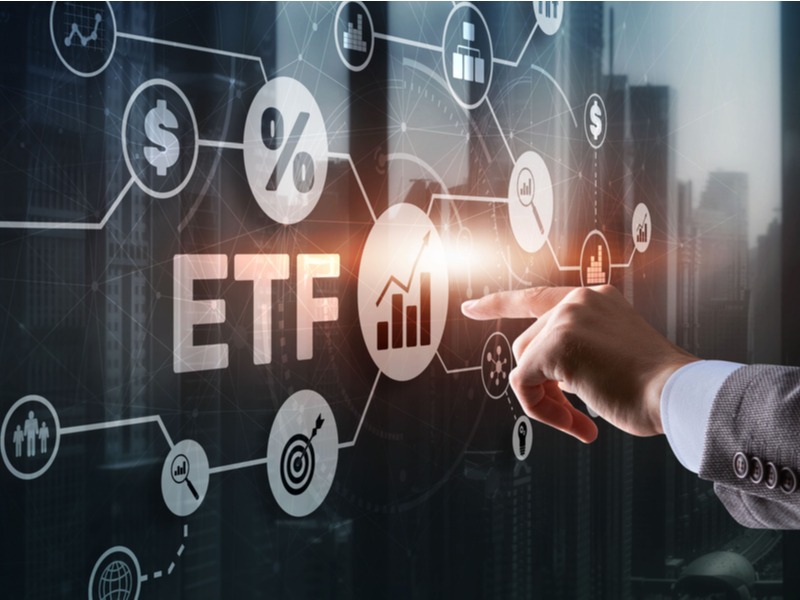
An index fund is a type of mutual fund in which the portfolio is constructed by identifying and replicating the composition of a market index like Sensex, Nifty 50, etc. The index fund then invests in the stocks that make up the benchmark index and in the same proportion as in the index.
Index funds are the latest entrants in the market of risk-averse investors. These are transparent investment options that offer diversity at a lower cost and steady returns in the long run. Investors can own top stocks through an index fund as it replicates a market index and reflects the overall economic growth in the country.
Read on to learn more about index funds and some top Sensex index funds in 2023.
What are index funds?
An index fund tries to replicate the performance of a market index by following its composition of stocks. These are also known as passive funds since they do not have active management by a manager. Thus, the expense ratio of index funds is far lower than the actively managed funds, and this makes them cost-efficient.
Index funds are new to the Indian investment market, however, more investors are getting attracted to this form of investment considering the diversification and low-cost features.
Why invest in Sensex index funds?
The Sensex is an Indian market index that was earlier known as the Bombay Stock Exchange (BSE). Sensex is made up of the 30 largest and most actively traded stocks on BSE and hence is considered a benchmark for the stock market. One of the oldest stock indexes, Sensex, is mainly used by investors to observe the growth and development of specific industries and fluctuations in the Indian economy.
Index funds that follow the Sensex as a benchmark index are known as Sensex index funds. Investors prefer to invest in Sensex index funds since they can easily get exposure to the stocks of top companies in the country without having to buy stocks of individual companies.
Top Sensex index funds to invest in 2023
Mentioned below are some top Sensex index funds in India:
ICICI Prudential S&P BSE Sensex Index Fund Growth
About Fund
ICICI Prudential S&P BSE Sensex Index Fund Growth is an open-ended fund that tracks and emulates the performance of the S&P BSE Sensex index. This is done through investment in the same stocks that are part of the Sensex index.
| Inception Date | September 21, 2017 |
| Benchmark Name | S&P BSE Sensex Total Return Index |
| Fund Manager | Mr Kayzad Eghlim and Mr. Nishit Patel |
| Expense ratio | 0.29% |
| Fund type | Open-ended |
| Risk | Moderately high |
Historical Returns of the Fund (annualised)
| 6-month | 1-Year | 3-Year | 5-Year | 10-Year |
| 14.89% | 6.60% | 16.18% | 14.01% | – |
UTI S&P BSE Sensex Index Fund Regular Growth
About the fund
UTI S&P BSE Sensex Index Fund Regular Growth invests 100% of its funds in Indian stocks. It is ideal for investors who are looking for long-term capital growth. Investment is concentrated in equity instruments of S&P BSE Sensex TRI index stocks and is subject to tracking error.
| Inception Date | 31st january 2022 |
| Benchmark Name | S&P BSE Sensex TRI |
| Fund Manager | Mr. Shravan Kumar Goyal |
| Expense ratio | 0.29% |
| Fund type | Open-ended |
| Risk | Very high |
Historical Returns of the Fund (annualised)
| 6-month | 1-Year | 3-Year | 5-Year | 10-Year |
| 14.87% | – | – | – | – |
HDFC Index S&P BSE Sensex
About the fund
HDFC Index S&P BSE Sensex is an open-ended scheme that replicates S&P BSE SENSEX Index. The Scheme is passively managed with stock investments in a proportion that is similar to their weights in the S&P BSE SENSEX Index.
| Inception Date | January 01, 2013 |
| Benchmark Name | S&P BSE Sensex Total Return Index |
| Fund Manager | Mr. Arun Agarwal and Mr. Krishan Kumar Daga |
| Expense ratio | 0.20% |
| Fund type | Open-ended |
| Risk | Moderately high |
Historical Returns of the Fund (annualised)
| 6-month | 1-Year | 3-Year | 5-Year | 10-Year |
| 14.95% | 6.77% | 16.15% | 14.26% | – |
How to invest in Sensex Index Funds ?
Investors can now invest in the top Sensex index funds easily by using the Fisdom app. Here are the steps to be followed:
- Download (Links at the bottom of this page) and launch Fisdom app on your smartphone
- Choose Équity on the home screen and click on ‘Index’ option in the next step
- Tap on ‘Invest’ against the selected fund option from the list
- Choose either ‘SIP’ or ‘Lump-sum’ investment and enter the amount of investment
- Provide your basic details as directed by the app
- Complete the payment procedure to start your investment
End Note
Investors prefer index funds because of lower expenses and other fees as compared to actively managed funds. Through passive management, index funds aim to match the risk and return of the market index. These are designed on the theory that in the long-term, the market outperforms individual or single investments.
Frequently Asked Questions
Which index fund is better: Nifty or Sensex?
The Sensex comprises 30 of the largest stocks while the NSE is made up of 50 equity stocks. While both are similar in the movements faced due to economic fluctuations, Nifty covers a wide range of sectors as compared to Sensex.
Can index fund investment make me rich?
There is no guarantee that index fund investments will make you rich. The returns generated from index funds depend on many factors such as the market index it tracks, economic situation, underlying stock performance, etc.
Is Index fund investment better than ETF?
ETFs involve lesser cost as compared to Index funds since the latter charge transaction fees along with a comparatively higher expense ratio. Investors can choose between the two as per their investment preferences and strategies.
Is it a good time to buy index funds?
Index fund investment timing depends on personal financial goals and investment strategy. There is no such thing as the perfect time to invest in index funds, however, some investors may prefer to observe market movements before making an investment.



























